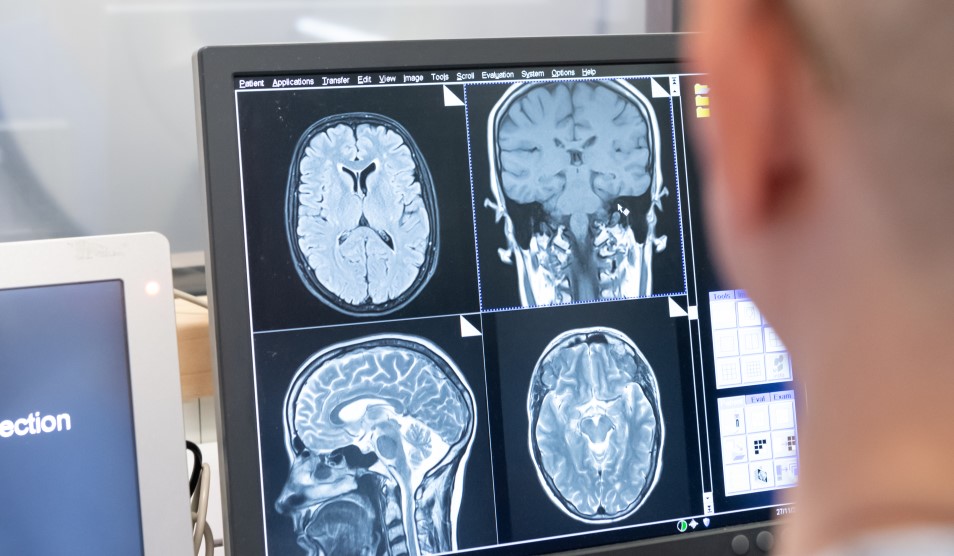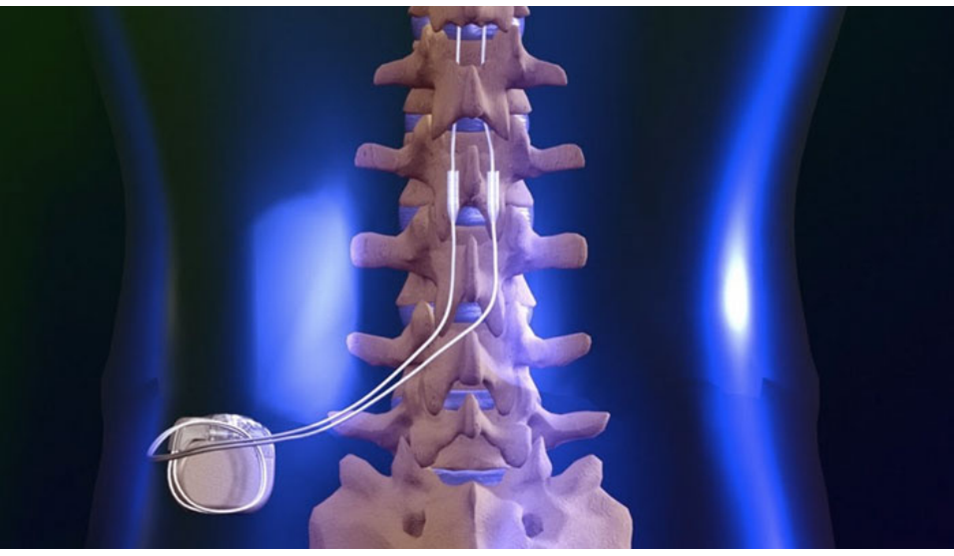Trust first in the UK to use non-invasive ultrasound for brain surgery
Clinicians at Imperial College Healthcare NHS Trust have used high-intensity, focused ultrasound waves for the first time in the UK to treat patients with debilitating tremors, avoiding traditional, invasive brain surgery techniques.
The procedure is the subject of a trial at the Trust, supported by a £1million grant from Imperial College Healthcare Charity to enable the purchase of special equipment to deliver the ultrasound. The trial is currently limited to around 20 suitable patients with essential tremor (ET).
Around one million people in the UK are affected by ET, a brain disorder characterised by uncontrollable shaking. Approximately, 100,000 people also have tremors caused by other movement disorders such as Parkinson’s disease or multiple sclerosis. Currently, patients with ET or other types of tremor are offered anti-tremor medication. If the medication is ineffective or causes adverse side effects, some patients are offered deep brain stimulation (DBS), though this brings a risk of brain haemorrhage or even death.
Tremor is thought to be caused by abnormal electrical circuits in the brain, which transmit tremors through the nervous system to the muscles. The new treatment, known as ‘MRI-guided focused ultrasound for brain’ works by accurately applying heat energy from ultrasound waves to very specific parts of the brain to break the abnormal circuit causing the tremor. The procedure is performed under local anaesthetic with no need for invasive brain surgery. Trials in America and Japan have shown that it reduces the severity of tremor by at least 80 per cent. The treatment works immediately and the results are expected to be long-lasting.
Mr Selwyn Lucas, a 52-year old painter and decorator from St Austell in Cornwall, is one of the first people to receive the treatment as part of the trial in the UK. He has lived with a tremor in his right hand for more than 20 years, which has grown progressively worse over the last five years.
Commenting on the treatment, Mr Lucas said:
“For many years I managed to live a relatively normal life with my tremor but over the last five years it had started to prevent me from leading the life I wanted to lead. It was also particularly difficult to continue my job as a painter and decorator as I had to learn to perform my job using my left hand and being a right-handed person this slowed my ability to complete jobs.
“Since the treatment I have been able to write my own name for the first time in many years and taken my wife out for a lovely meal without fear of embarrassing myself. I will also be able to go back to using my right hand which will allow me to take on more painting and decorating jobs.”
Professor Wladyslaw Gedroyc, consultant radiologist and principal investigator for this trial Trust, said:
“We are pleased with the results of the trial so far. We anticipate that this new approach to therapy in essential tremor and other movement disorders, including Parkinson’s, will allow huge improvements in patients’ quality-of-life without the need for invasive procedures or expensive, poorly tolerated and often ineffective drug therapy.”
Dr Peter Bain, consultant neurologist at the Trust and co-coordinator of the trial, said:
“Tremor is a progressive and disabling condition that affects patients’ ability to perform their daily activities at home or in the workplace. Despite anti-tremor medication, many patients have a much reduced quality of life. It can leave them significantly disabled and socially ill at ease, largely because tremor in their dominant hand prevents accurate manual functioning and also because people can feel embarrassed.
“This new technique, which is in my view the biggest breakthrough in medical science in the last 20 years, could offer hope to many in the future by providing those with limited treatment options a non-invasive highly effective treatment.”
Mr Dipankar Nandi, Consultant Neurosurgeon who is performs the treatment said:
“This breakthrough allows us to operate on patients without the significant risks associated with deep brain stimulation. We are at the cusp of widening the applications of this innovative technology to help a wide variety of patients, some of whom had no therapeutic option before.”
Professor Gedroyc and his team have 15 years’ experience using MRI-guided focused ultrasound for different parts of the body. The initial trial is for 20 patients with ET only. The team also hope to trial the technology for use in patients with Parkinson’s disease and to develop other areas of application such as for severe tremor associated with multiple sclerosis in the future.
The £1 million funding for the equipment required for the trial came from a legacy left to Imperial College Healthcare Charity by a former St Mary’s Hospital nurse.
Ian Lush, chief executive of Imperial College Healthcare Charity, said:
“We are delighted to have made one of our largest ever grants to enable such an exciting trial. We very much hope it will help make the case for offering this potentially life-changing procedure to many more people in the future.”
For more information about MR-guided focused ultrasound for essential tremor visit our research pages.
Notes to editors:
1. About the trial
The current trial, which Selwyn Lucas participated in, is now full and the Trust cannot accept any new referrals or participants. The funding for the current trial is provided by InsighTec, the company who produced and developed the technology. This trial is looking to build on previous trails and show that the treatment is as effective in the UK as it has been elsewhere. The Trust hopes that additional trials will be set up in the near future. At the conclusion of the trial, the results will be analysed, looking at the benefits and any adverse effects of the treatment.
2. MRI-guided focused ultrasound for brain in the future
The Trust hopes that the procedure will be made widely available on the NHS once the trials have concluded and the effectiveness of the treatment proved. The treatment will then need to be approved by NICE and NHS England before it can be rolled out across the NHS. The current trial is restricted to patients with essential tremor only. It is anticipated that new trials will be set up to examine the benefits of the treatment for people with Parkinson’s disease and other types of tremor, including multiple sclerosis associated tremor in the near future.
3. Imperial College Healthcare Charity raises funds for five London hospitals within Imperial College Healthcare NHS Trust: Charing Cross, Hammersmith, Queen Charlotte’s & Chelsea, St Mary’s and Western Eye hospitals. Since 2009, the charity has awarded over £20 million in grants to over 400 pieces of clinical research and healthcare projects across the hospitals, all of which aim to improve patient healthcare. www.imperialcharity.org.uk
4. For more information about the technology please contact Madeleine Childs, media manager at Imperial College Healthcare NHS on madeleine.childs@imperial.nhs.uk or telephone.




